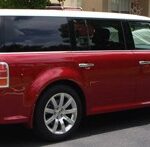Experiencing trouble with your D900 OBD2 scanner? It can be frustrating when your diagnostic tool fails to connect or power up, especially when you’re trying to understand your vehicle’s issues. Many DIY car enthusiasts and professional mechanics rely on OBD2 scanners like the D900 to read trouble codes and assess vehicle health. If you find your “D900 Obd2 Scanner Not Working,” this guide will walk you through potential causes and troubleshooting steps to get you back on track.
One of the first things to check when your D900 OBD2 scanner is unresponsive is the power supply. OBD2 scanners draw power directly from your vehicle’s OBD2 port. If there’s no power, the scanner won’t turn on or connect. Here’s how to investigate power issues:
- Check the OBD2 Port for Power: The OBD2 port should supply power to the scanner. If your D900 scanner is not powering on, there might be an issue with the port itself. You can use a multimeter to check if the OBD2 port is providing the necessary voltage. Consult your vehicle’s repair manual for the specific pins that should provide power.
- Inspect Vehicle Fuses: A blown fuse is a common culprit for a non-functional OBD2 port. Locate your vehicle’s fuse box (usually under the dashboard or in the engine bay) and identify the fuse related to the OBD2 port or auxiliary power. Check the fuse for any signs of damage or a broken filament. Replace any blown fuses with a fuse of the same amperage rating.
If power isn’t the issue, the problem might lie in the connection between the scanner and your vehicle’s OBD2 port.
- Ensure Proper Connection: A loose or improperly connected scanner is a frequent cause of connection failures. Make sure the D900 scanner is firmly plugged into the OBD2 port. Sometimes, the port might be slightly recessed or the scanner’s connector might not fit perfectly. Try pushing the scanner in firmly, ensuring it’s fully seated in the port.
- Inspect the OBD2 Port Pins: Examine the pins inside your vehicle’s OBD2 port and on the D900 scanner’s connector for any signs of damage, corrosion, or bent pins. Damaged pins can prevent proper communication and power delivery. If you notice any issues, professional repair might be needed to fix the OBD2 port.
Sometimes, the problem isn’t with the power or connection, but with compatibility or software glitches.
- Vehicle Compatibility: While OBD2 is a standardized system, there can be compatibility issues, especially with older vehicles or specific makes and models. Double-check that your D900 scanner is compatible with your vehicle’s year, make, and model. Refer to the scanner’s manual or the manufacturer’s website for compatibility information.
- Software Glitches or Updates: In rare cases, a software glitch in the vehicle’s computer system or even a recent software update performed by a dealership could interfere with OBD2 communication. As mentioned in the original post, a software upgrade at a service appointment coincided with OBD2 issues. While less common, this possibility shouldn’t be entirely dismissed.
If you’ve gone through these troubleshooting steps and your “d900 obd2 scanner not working” issue persists, it might be time to seek professional help. A certified mechanic or your local dealership’s service department can diagnose more complex issues within your vehicle’s diagnostic system. They have specialized tools and expertise to pinpoint the exact cause of the problem and get your OBD2 diagnostics working again.
